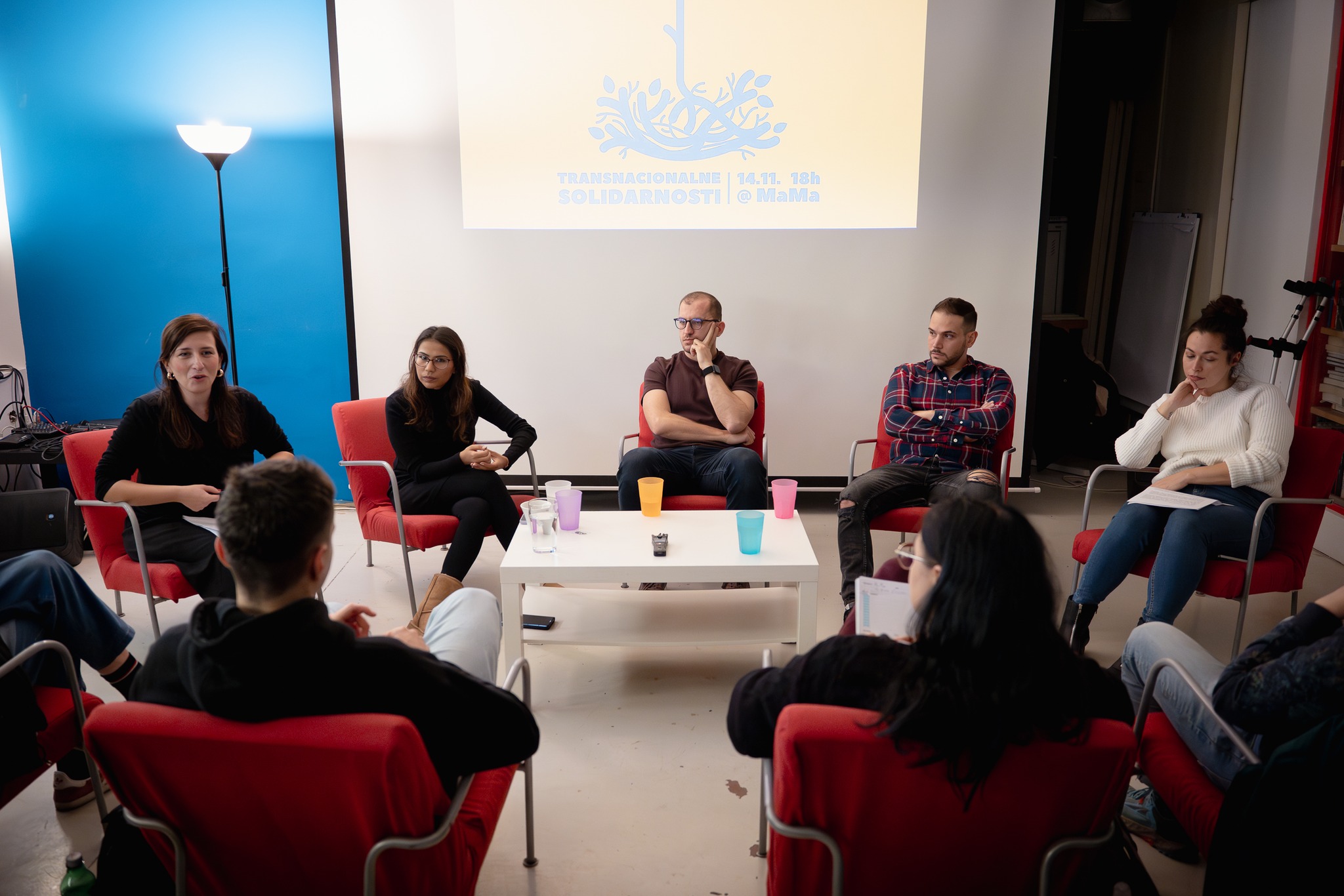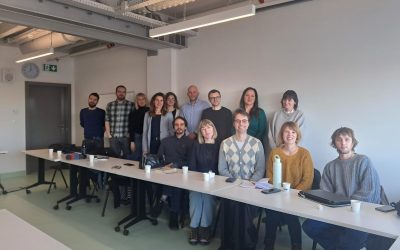As part of the Transnational Solidarities series, a public discussion titled “Labor, Migration, and Digital Regimes through Workers’ Voices” was held on November 14 at Club MaMa, focusing on labor, migration, and the transformation of work relations in the era of digital capitalism. The panel explored the intersections of labor and migration regimes and examined how digitalization and platformization generate new working conditions marked by complex forms of precarity, dependency, surveillance, and racialization of labor. The discussion was grounded in the experiences and analyses of workers themselves, focusing on the limits of the digital economy, migration policies, and the possibilities for trade union organizing under conditions of insecurity.
Speakers included Sweta Pudasaini, Nepali translator and cook with many years of experience navigating precarity across different labor regimes; Nader Wahech, platform worker and organizer of the Re-WOLT initiative, which brings together delivery workers in the struggle for labor rights and dignity at work; and Semih Adigüzel, student and platform worker who shared first-hand accounts of precarious and insecure working conditions in the digital economy.
The audience also learned about the project DEVELOPER – Digital Data, Infrastructures, and Development, implemented by the Institute for Development and International Relations (IRMO), as well as Building the City Together, a project by the Multimedia Institute (MaMa) that connects migrant platform delivery workers and the local community through the innovative use of QR codes in public space. The Transnational Solidarities series is facilitated by Emina Bužinkić and Lucija Mulalić.



